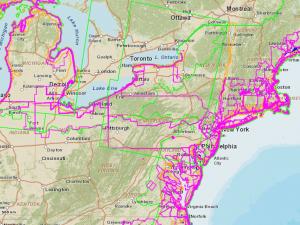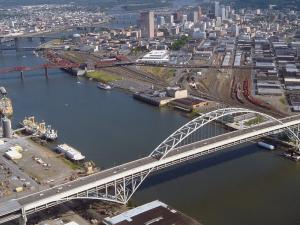Image

Image

USDOT-FHWA
Image

Still image from the video "Climate Change Vulnerability Assessment for San Juan Bay, Puerto Rico" from the U.S. Environmental Protection Agency
Image

Still image from the video, "Manchester-by-the-Sea, Massachusetts: Water Utility Climate Adaptation Planning" from the U.S. Environmental Protection Agency
Image

Still image from video, "Fredericktown, Missouri: Water Utility Climate Adaptation Planning" from the U.S. Environmental Protection Agency




